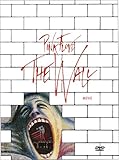Posted by Notcot on Jun 2, 2010 in
Noir 
Average Rating: 5.0 / 5 (5 Reviews)
Amazon.co.uk Review
Of all the Philip Marlowes, Robert Mitchum’s in Farewell, My Lovely resonates most deeply. That’s because this is Marlowe past his prime, and Mitchum imbues Raymond Chandler’s legendary private detective with a sense of maturity as well as a melancholy spirit. And yet there is plenty of Mitchum’s renowned self-deprecating humour and charismatic charm to remind us of his own iconic presence. As in the previous 1944 film version, Murder, My Sweet, Marlowe searches all over L.A. for the elusive girlfriend of ex-con Moose Malloy, a loveable giant who might as well be King Kong. In typical Chandler fashion, the weary Marlowe uncovers a hotbed of lust, corruption and betrayal. Like Malloy, he’s disillusioned by it all, despite his tough exterior, and possesses a tinge of sentimentality for the good old days. About the only current dream he can hold onto is Joe DiMaggio and his fabulous hitting streak. Made in 1975, a year after Chinatown (shot by the same cinematographer, John Alonzo), Farewell, My Lovely is more straightforward and nostalgic, but still possesses a requisite hard-boiled edge, and the best kind of angst the 1970s had to offer. (By the way, you will notice Sylvester Stallone in a rather violent cameo, a year before his Rocky breakthrough.) –Bill Desowitz, Amazon.com
Farewell My Lovely
Buy Now for £3.02
Tags: amazon co uk, charismatic charm, Chinatown, cinematographer, exterior, Farewell, fashion, film version, hitting streak, hotbed, joe dimaggio, kind, King, Kong, Lust, marlowe, marlowes, maturity, melancholy spirit, plenty, private detective, Raymond Chandler, robert mitchum, self deprecating, sentimentality, shot, Sweet, Sylvester Stallone, version, way
Posted by Notcot on Apr 21, 2010 in
Cult Film 
Average Rating: 4.5 / 5 (28 Reviews)
Amazon.co.uk Review
By any rational measure, Alan Parker’s cinematic interpretation of Pink Floyd’s The Wall is a glorious failure. Glorious because its imagery is hypnotically striking, frequently resonant and superbly photographed by the gifted cinematographer Peter Biziou. And a failure because the entire exercise is hopelessly dour, loyal to the bleak themes and psychological torment of Roger Waters’ great musical opus, and yet utterly devoid of the humour that Waters certainly found in his own material. Any attempt to visualise The Wall would be fraught with artistic danger, and Parker succumbs to his own self-importance, creating a film that’s as fascinating as it is flawed. The film is, for better and worse, the fruit of three artists in conflict–Parker indulging himself, and Waters in league with designer Gerald Scarfe, whose brilliant animated sequences suggest that he should have directed and animated this film in its entirety. Fortunately, this clash of talent and ego does not prevent The Wall from being a mesmerising film. Boomtown Rats frontman Bob Geldof (in his screen debut) is a fine choice to play Waters’s alter ego–an alienated, “comfortably numb” rock star whose psychosis manifests itself as an emotional (and symbolically physical) wall between himself and the cold, cruel world. Weaving Waters’s autobiographical details into his own jumbled vision, Parker ultimately fails to combine a narrative thread with experimental structure. It’s a rich, bizarre, and often astonishing film that will continue to draw a following, but the real source of genius remains the music of Roger Waters. –Jeff Shannon
Pink Floyd: The Wall
Buy Now for
Tags: Alan Parker, amazon, amazon co uk, animated sequences, autobiographical details, Average, Bob Geldof, boomtown rats, cinematic interpretation, cinematographer, cold cruel world, exercise, experimental structure, failure, FILM, Floyd, Gerald Scarfe, Glorious, glorious failure, imagery, interpretation, Jeff Shannon, measure, musical opus, Parker, Peter Biziou, Pink, pink floyd the wall, psychological torment, rating, ReviewBy, Reviews, Roger Waters, screen debut, wall

